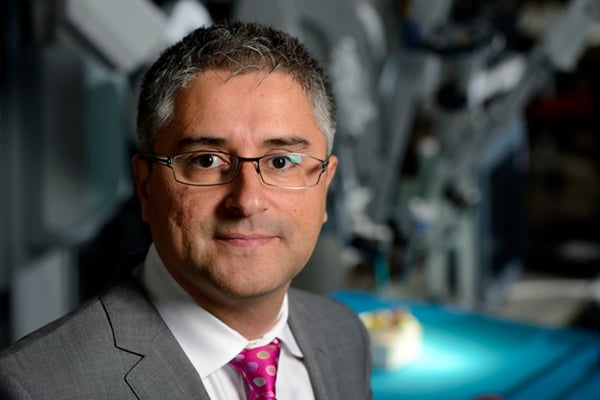René Vidal, the director of the Mathematical Institute for Data Science (MINDS) and the Herschel L. Seder Professor in Johns Hopkins University’s Department of Biomedical Engineering, is leading a team of engineers, mathematicians, and theoretical computer scientists from multiple institutions who seek to revolutionize our understanding of the mathematical and scientific foundations of deep learning.
Their project, Collaborative Research: Transferable, Hierarchical, Expressive, Optimal, Robust, and Interpretable NETworks (THEORINET), is funded by the National Science Foundation-Simons Foundation’s Research Collaborations on the Mathematical and Scientific Foundations of Deep Learning (MoDL) program and will receive ten million dollars over five years. The Johns Hopkins-led consortium is one of only two teams that were awarded funding for this national effort.
THEORINET researchers will develop a mathematical, statistical, and computational framework that will explain the success of current deep network architectures, understand their pitfalls, and guide the design of novel architectures with guaranteed, robustness, interpretability, optimality, and transferability.
“The complex and large-scale nature of deep networks makes them hard to analyze and, therefore, they are mostly used as black-boxes without formal guarantees on their performance,” explains Vidal. “As deep learning systems are increasingly employed in our daily lives, it becomes critical to understand if their predictions satisfy certain desired properties.”
Another goal for the project is to train a new, diverse STEM workforce with data science skills that are essential for the global competitiveness of the U.S. economy. This will be accomplished through the creation of new undergraduate and graduate research programs focused on the foundations of data science that include a series of collaborative research events. Women and members of underrepresented minority populations also will be served through an associated NSF-supported Research Experience for Undergraduates program in the foundations of data science.
Vidal’s research focuses on the development of theory and algorithms for the analysis of complex high-dimensional datasets such as images, videos, time-series, and biomedical data. Vidal is joined by three additional faculty members from the Johns Hopkins’s Mathematical Institute for Data Science: Mauro Maggioni, Bloomberg Distinguished Professor in the Department of Applied Mathematics and Statistics and the Department of Mathematics, Soledad Villar, assistant professor in the department of Applied Mathematics and Statistics, and Joshua Vogelstein, assistant professor in the Department of Biomedical Engineering. Additional co-investigators come from Duke University, UC Berkeley, the University of Pennsylvania, Stanford University, and the Technical University of Berlin.

